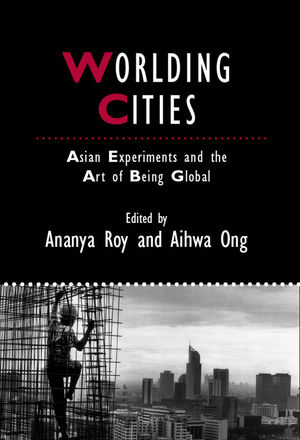Worlding Cities: Asian Experiments and the Art of Being GlobalISBN: 978-1-4051-9276-7
Paperback
376 pages
August 2011, Wiley-Blackwell
 This is a Print-on-Demand title. It will be printed specifically to fill your order. Please allow an additional 10-15 days delivery time. The book is not returnable.
|
||||||
“I am hopeful that this collection, along with others of its kind, will inspire new lines of research and theorisation that will help arrest the actual realities of cities in an era of planetary urbanisation.” (Urban Studies, 1 February 2015)
"Urban studies is marked by an ingrained tendency to consider cities in Western Europe and North America as the leading edge of global urban change. This important book draws attention to ways in which cities in Asia are experimenting with ways of being global which do not necessarily refer back to antecedents in the North Atlantic world. The book should be read not only by Asianists but by anyone who is interested in the dynamics of urban change globally."
—Tim Bunnell, National University of Singapore
“The contributors to Worlding Cities bring new
ethnographic attention to urban sites of innovation, cultural
connections, and potentially transformative aspirations. They
connect what is happening in cities to the ways changing relations
among cities are remaking connections across national boundaries.
And in the process they help to remake social science with new
connections among anthropologists, geographers, and urban planners.
Focused mainly on Asia, this is work that matters
globally.”
—Craig Calhoun, President, Social Science Research
Council
"A refreshing and wide-ranging volume that makes a timely
contribution to debates in urban studies, geography, and planning.
Rather than attempt to identify the features of a 'global' city or
trace the reproduction of 'Western' forms in Asian cities, this
collection examines how projects of 'worlding' are actively
assembled and urban futures envisaged. It uncovers diverse routes
through which cities inter-reference one another and are produced
as distinctive spaces of experimentation and aspiration in contexts
of uncertainty and inequality."
—Colin McFarlane, Durham University, UK



